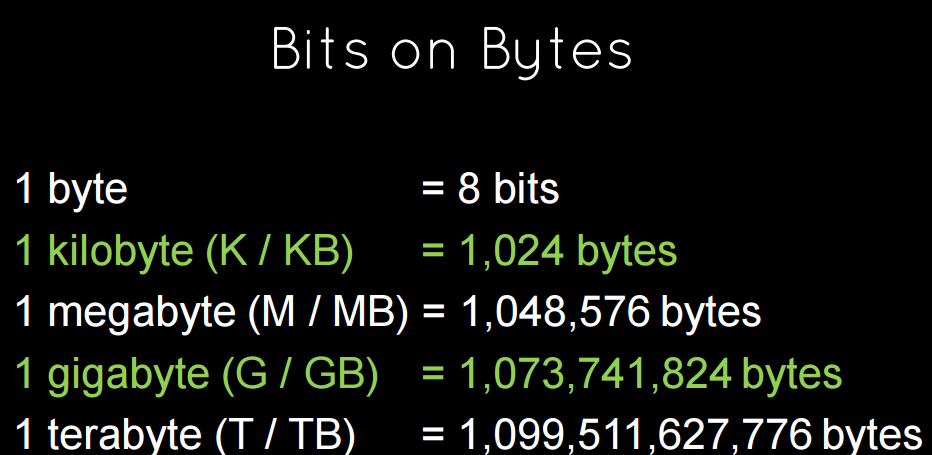Sources of data
- Original Data or Information - data being introduced for the first time
- Previously Stored Data or Information - data that has already been processed by the computer and is being stored for future use
Digitizing - process of converting recorded things such as images, videos, and images to binary form so that the computer can read it
Connecting Hardware to a Computer
- Hardware needs a software so that it can be properly used.
- Device Driver - a software still needs to be installed, usually using a CD, so that you can use the device
- Plug and Play - the hardware is usable once plugged to the computer, no boot required. Its software is in its firmware, a combination of a hardware and software
Storage Devices
- Speed and Access Time
- Cost / Removable vs Non-Removable
- Capacity
- Type of Access
- Sequential - the storage device is searched from the beginning until the designated area is found
- Random Access - Direct Access
Bit - the smallest unit of data. Can contain 2 states of information, such as Yes and No
Byte - is equal to 8 bits. A byte can represent 256 states of information. One byte could be equal to 1 character
Word - fundamental units of information. This can contain bytes. Information are moved through the computer in words. The number of bits per word may vary according to computer




